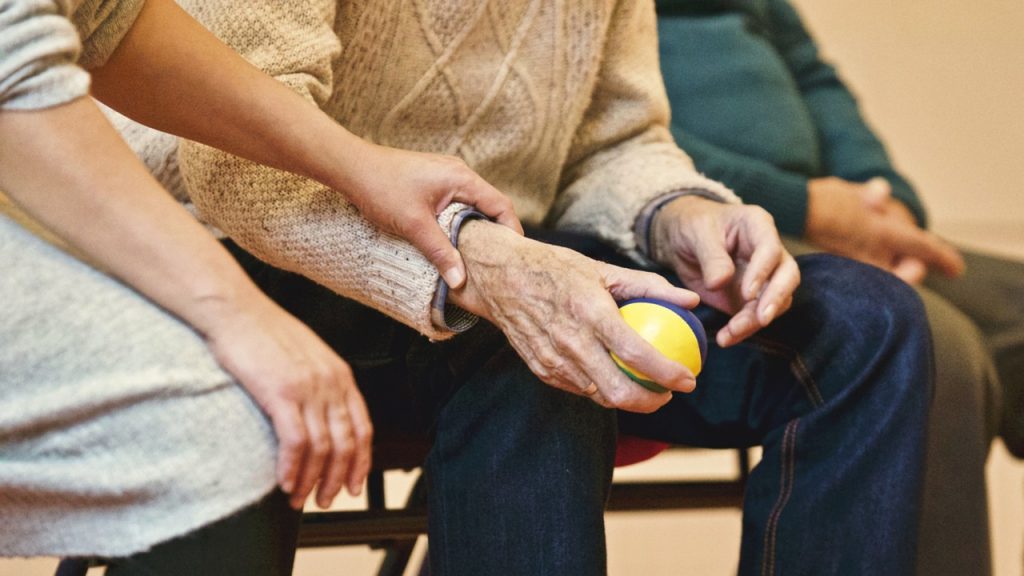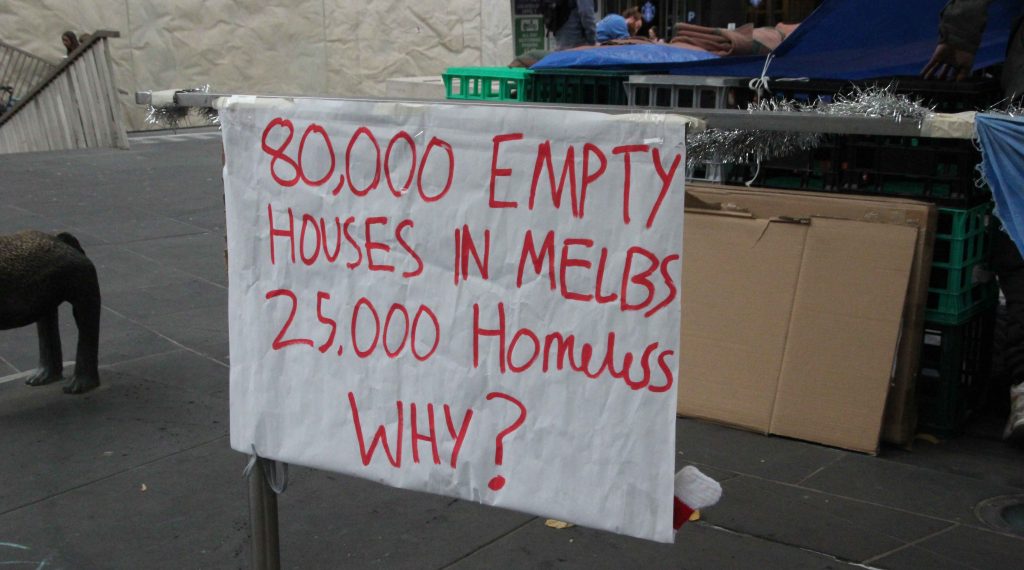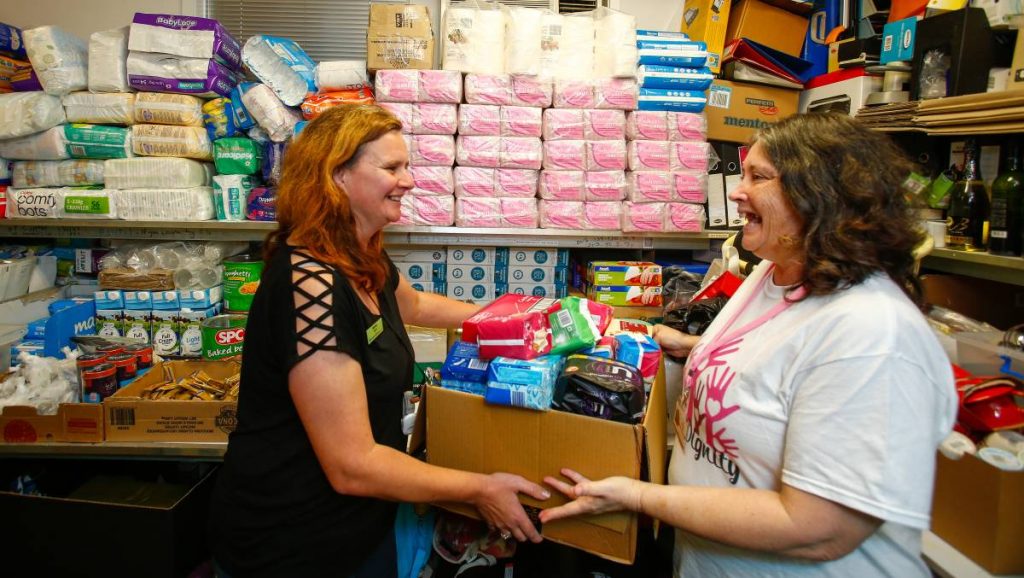 As we wind up another year, it is a good time to pause and reflect on where we have come from, and where we need to go. Sadly, 2017 has not been a positive year for the state of homelessness. We have continued to backslide on key issues like affordable housing, and maintained the status quo in key funding areas. While government has failed to act, 2017 has also seen increasing public concern, and greater media reporting on the causes and harms of homelessness.
As we wind up another year, it is a good time to pause and reflect on where we have come from, and where we need to go. Sadly, 2017 has not been a positive year for the state of homelessness. We have continued to backslide on key issues like affordable housing, and maintained the status quo in key funding areas. While government has failed to act, 2017 has also seen increasing public concern, and greater media reporting on the causes and harms of homelessness.
HOMELESSNESS ON THE RISE
 This year saw a steady growth in the number of people being affected by homelessness. People contacting homelessness services has grown by almost 20% over four years, and the critical lack resources and housing options saw 1 in 4 of these people turned away every day.
This year saw a steady growth in the number of people being affected by homelessness. People contacting homelessness services has grown by almost 20% over four years, and the critical lack resources and housing options saw 1 in 4 of these people turned away every day.
The overwhelming majority of our partner services tell us that the mix of funding cuts and increased demand are leaving them simply unable to cope. Despite the clear and pressing need, federal leaders have failed to take leadership on the issue. As the Council for Homeless Persons recently stated:
“While new investments in social housing [are welcome], these have come after years of neglect, and in a context in which the cost of renting keeps rising faster than incomes, pushing a constant and increasing flow of people into homelessness. Despite thousands of people lining up at agency doors every year, federal homelessness funding to the states has flatlined. “
DEMONISING PEOPLE EXPERIENCING HOMELESSNESS

Although just a small percentage of those experiencing homelessness are sleeping rough in major cities- as homelessness has grown, so have those seeking refuge in major centres. Sydney and Melbourne both moved to criminalise rough sleeping, fueling a year-long battle that at times turned violent.
The tent city at Martin Place, also known as Sydney’s 24-7 Street Kitchen and Safe Space stood afoot the Reserve Bank’s doorstep for almost 12 months. Tent City was eventually evicted when the NSW Parliament passed laws that would give the State Government the power to remove people or goods who “were unacceptable impacts on the public.”
While the issue of homelessness came to the doorstep of political leaders, the NSW government failed to deliver on the need for new housing in the state budget and offered Tent City residents unsafe or completely unsuitable housing solutions.
Moves to criminalise homelessness also took a spotlight in Melbourne, centred around the sharp rise in rough sleepers in the CBD. The City of Melbourne attempted to introduce by-laws that would ban rough sleeping and allow unattended belongings to be confiscated.
The so-called homeless-ban was delayed and eventually dumped in the face of overwhelming public criticism. Clashes between police and protesters were a regular feature of 2017, some of which turned violent.
While local governments have little influence over the major drivers of homelessness, Sydney and Melbourne’s heavy-handed responses have set an unfortunate precedent for how our communities respond to the crisis. Greater cooperation between levels of government, investment, and leadership are all on our wish list for 2018.
A YEAR OF INACTION ON HOUSING AFFORDABILITY
 Despite the rental market driving a steady stream of people out of their homes, there has been a disappointing lack of federal leadership on easing the pressure on renters.
Despite the rental market driving a steady stream of people out of their homes, there has been a disappointing lack of federal leadership on easing the pressure on renters.
The 2017 federal budget did not set out a national affordable housing strategy and offered no plan to increase government funding for new social housing. The underlying drivers of the inflated housing market – namely negative gearing and capital gains concessions were left untouched.
The first national survey of tenants also revealed that renters in Australia have little security, are living in poor quality homes, experience discrimination based on their income, age, parental status and are fearful of reprisal if they request repairs and maintenance.
Housing affordability and the rights of tenants are central to maintain secure housing. We need public policy treat housing as a fundamental right, not a commodity – and we have a long way to go to shift attitudes and policy on this issue.
GROWING COMMUNITY AWARENESS
 While it has been a disappointing year for government leadership on homelessness – community concern has grown. Everyday people and businesses are concerned about the crisis unfolding in their community and are taking action.
While it has been a disappointing year for government leadership on homelessness – community concern has grown. Everyday people and businesses are concerned about the crisis unfolding in their community and are taking action.
Major media outlets have placed a spotlight on housing and homelessness, bringing the depth of the problem to the kitchen table of more Australians than ever. The Huffington Post, ABC, SBS aired ‘Filthy Rich and Homeless’ challenged stereotypes, and brought the issue to a large audience.
Our fundraising initiatives bring together businesses, services and local people to raise funds. Through our community engagement, we know that concern is growing. CafeSmart took place in August this year and raised a record $2.85 million for local homelessness services. Our StreetFunder program has grown to raise almost $100 thousand with many people donating for the first time after a Google search on how to support people experiencing homelessness. Our DineSmart campaign will conclude on the 24th of December, with tens of thousands of diners having contributed to help fund local services.
We cannot end homelessness without dealing with the big picture complexities that are driving the crisis. With more and more people expressing deep concern and being personally touched by homelessness – we are hopeful that 2018 will see government respond to public sentiment and take leadership on the issue.
We would like to thank all of our partners and supporters for joining our work and giving us a strong sense of hope for the future. We cannot end homelessness alone, but we can if we speak out and act together.








